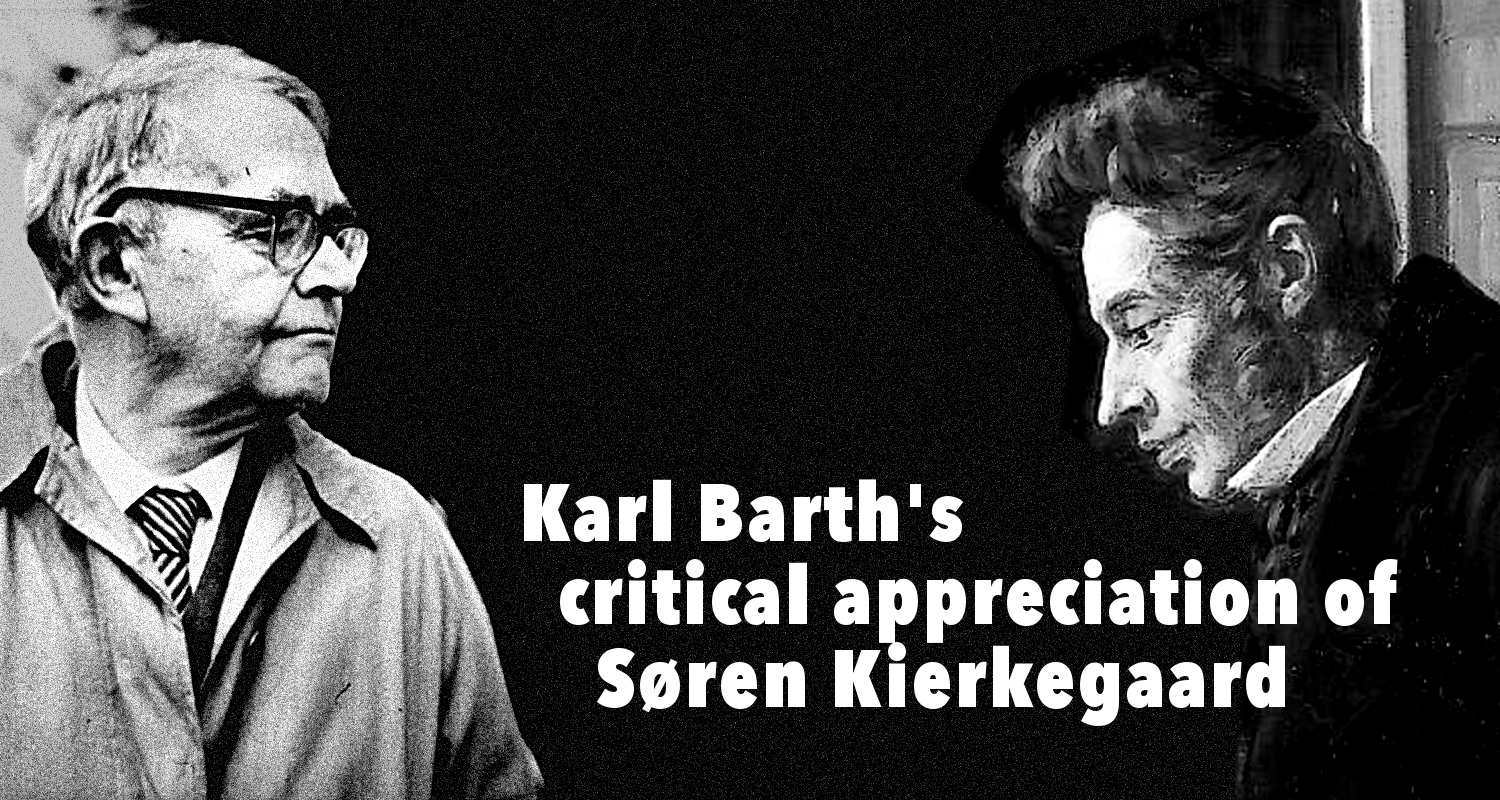 Karl Barth received the Danish Sonning Prize in 1963, which was also received by William Churchill, Albert Schweitzer, Igor Stravinsky, Niels Bohr, and Bertrand Russel. [p19] When Barth received the award, he provided a brief criticism of Søren Kierkegaard (sharing many similarities with Barth's criticism of Friedrich Schleiermacher) that every theologian must go through him, but should not remain his disciple or return to him again. Max Zellweger-Barth (Barth's son-in-law) attended Karl Barth on this trip to Copenhagen to receive the Sonning Prize, and in his book My Father-In-Law: Memories of Karl Barth, he shares a quotation from Barth's acceptance speech (also available in Fragments Grave and Gay) that was not well received by Danish audience in the same town where Kierkegaard was born, lived and died.
Karl Barth received the Danish Sonning Prize in 1963, which was also received by William Churchill, Albert Schweitzer, Igor Stravinsky, Niels Bohr, and Bertrand Russel. [p19] When Barth received the award, he provided a brief criticism of Søren Kierkegaard (sharing many similarities with Barth's criticism of Friedrich Schleiermacher) that every theologian must go through him, but should not remain his disciple or return to him again. Max Zellweger-Barth (Barth's son-in-law) attended Karl Barth on this trip to Copenhagen to receive the Sonning Prize, and in his book My Father-In-Law: Memories of Karl Barth, he shares a quotation from Barth's acceptance speech (also available in Fragments Grave and Gay) that was not well received by Danish audience in the same town where Kierkegaard was born, lived and died.
Karl Barth said:
In light of these later insights, I am and remain thankful as before to Kierkegaard for the immunization he gave me in those days. I am and remain filled with deep respect for the genuinely tragic nature of his life and for the extraordinary intellectual luster of his work. I consider him a teacher into whose school every theologian must go once. Woe to the one who has missed it! So long as one does not remain in or return to it! His teaching is, as he himself once said "a pinch of spice" for the food, not the food itself, which is the task of right theology to offer to the church and thus to all humans. The Gospel is first the glad news of God's YES to human beings. It is secondly the news which the congregation must pass on to the whole world. It is thirdly the news from on high. These are three aspects, in relation to which I had to do further study, after my meeting Kierkegaard, in the school of other teachers. [1]
It is not surprising that the audience was not pleased with Karl Barth's criticism of Kierkegaard in his acceptance speech. It may be surprising to many, especially fundamentalist Reformed critics such as Cornelius Van Til (a.k.a. "he who must not be named"), who have cited the early Barth's positive appropriation of Kierkegaard (especially in his The Epistle to the Romans) as grounds for rejection Barth entirely. For many reasons, the older Barth who wrote the Church Dogmatics did not rely on Kierkegaard like he did in Römerbrief (1919 and 1921), but it is obvious from this quotation that Barth maintained great respect for Kierkegaard throughout his entire life.
In My Father-In-Law: Memories of Karl Barth, Max Zellweger-Barth explains Karl Barth's shift away from Kierkegaard as follows:
What Karl Barth said, in brief form, was this. While the young Barth often made positive references to Kierkegaard, he would later register particular reservations about Kierkegaard's negations, his individualism in relation to human salvation and his anthropocentricism. In Kierkegaard there are to be found rudiments of the existential philosopher Heidegger, Jaspers and Sartre. And yet he, Karl Barth, remains faithful to this day to Kierkegaard's "reveille." [2]
To learn more about Barth's critical appreciate for Kierkegaard, I recommend his book Fragments Grave and Gay , especially Barth's essays "Thank you and a bow" (that contains the above quotation from Barth) and "Kierkegaard and the Theologians". Many have noticed the odd omission of Kierkegaard from Barth's Protestant Theology in the Nineteenth Century because this is where one would expect to learn about Kierkegaard foremost. This omision is typically explained away because of Kierkegaard's forward thinking that was beyond his time and might have belonged in the 20th century instead.
Sources:
1. Max Zellweger-Barth, My Father-In-Law: Memories of Karl Barth, tr. H. Martin Rumscheidt, Pickwick Publications Eugene: 1986, pp. 22-23. [Quotation is from Karl Barth's Sonning Prize acceptance speach]
2. Max Zellweger-Barth. p. 22
3. Header image includes images of left Karl Barth (source: wikipedia) and right Luplau Janssen's Søren Kierkegaard painting (source: wikipedia).



Leave a comment